We’re delighted to offer a selection of latest releases from our core subjects of Anthropology, Applied Anthropology, Genocide Studies, and History, along with our New in Paperback titles.
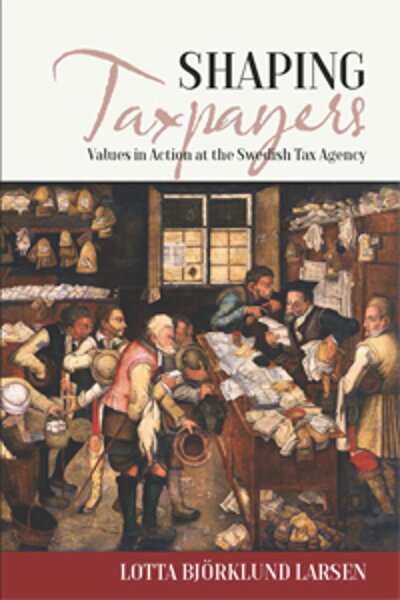 SHAPING TAXPAYERS
SHAPING TAXPAYERS
Values in Action at the Swedish Tax Agency
Lotta Björklund Larsen
How do you make taxpayers comply? This ethnography offers a vivid, yet nuanced account of knowledge making at one of Sweden’s most esteemed bureaucracies – the Swedish Tax Agency. In its aim to collect taxes and minimize tax faults, the Agency mediates the application of tax law to ensure compliance and maintain legitimacy in society. This volume follows one risk assessment project’s passage through the Agency, from its inception, through the research phase, in discussions with management to its final abandonment. With its fiscal anthropological approach, Shaping Taxpayers reveals how diverse knowledge claims – legal, economic, cultural – compete to shape taxpayer behaviour.
Read Introduction
Research Methods for Anthropological Studies of Food and Nutrition Volume I – III
Editors: Janet Chrzan and John A. Brett,
Published in Association with the Society for the Anthropology of Food and Nutrition (SAFN) and in Collaboration with Rachel Black and Leslie Carlin
The dramatic increase in all things food in popular and academic fields during the last two decades has generated a diverse and dynamic set of approaches for understanding the complex relationships and interactions that determine how people eat and how diet affects culture. These volumes offer a comprehensive reference for students and established scholars interested in food and nutrition research in Nutritional and Biological Anthropology, Archaeology, Socio-Cultural and Linguistic Anthropology, Food Studies and Applied Public Health.
BUY ALL THREE VOLUMES FOR 20% DISCOUNT
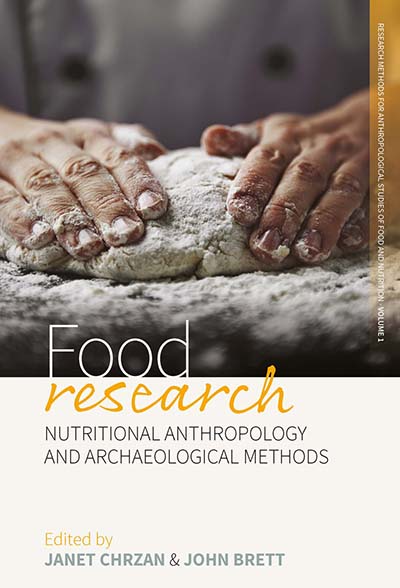 Volume I
Volume I
FOOD RESEARCH
Nutritional Anthropology and Archaeological Methods
Biocultural and archaeological research on food, past and present, often relies on very specific, precise, methods for data collection and analysis. These are presented here in a broad-based review. Individual chapters provide opportunities to think through the adoption of methods by reviewing the history of their use along with a discussion of research conducted using those methods. A case study from the author’s own work is included in each chapter to illustrate why the methods were adopted in that particular case along with abundant additional resources to further develop and explore those methods.
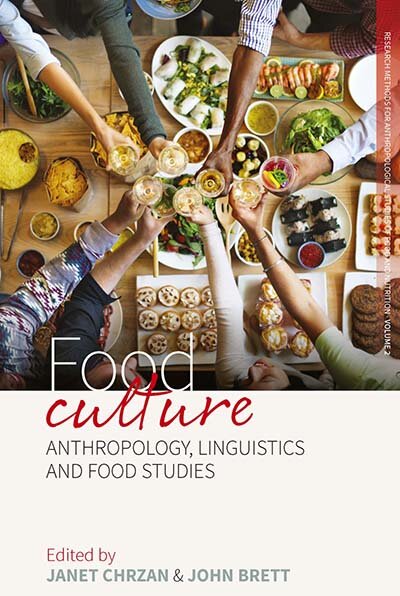 Volume II
Volume II
FOOD CULTURE
Anthropology, Linguistics and Food Studies
This volume offers a comprehensive guide to methods used in the sociocultural, linguistic and historical research of food use. This volume is unique in offering food-related research methods from multiple academic disciplines, and includes methods that bridge disciplines to provide a thorough review of best practices. In each chapter, a case study from the author’s own work is to illustrate why the methods were adopted in that particular case along with abundant additional resources to further develop and explore the methods.
 Volume III
Volume III
FOOD HEALTH
Nutrition, Technology, and Public Health
Nutritional Anthropology and public health research and programming have employed similar methodologies for decades; many anthropologists are public health practitioners while many public health practitioners have been trained as medical or biological anthropologists. Recognizing such professional connections, this volume provides in-depth analysis and comprehensive review of methods necessary to design, plan, implement and analyze public health programming using anthropological best practices. To illustrates the rationale for use of particular methods, each chapter elaborates a case study from the author’s own work, showing why particular methods were adopted in each case.
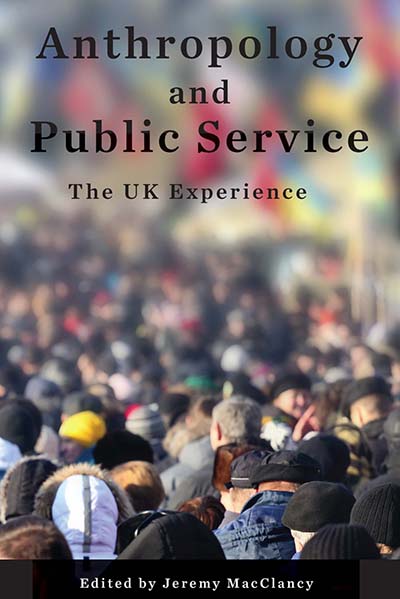 ANTHROPOLOGY AND PUBLIC SERVICE
ANTHROPOLOGY AND PUBLIC SERVICE
The UK Experience
Edited by Jeremy MacClancy
These days an increasing number of social anthropologists do not find employment within academia. Rather, many find jobs with commercial organizations or in government, where they run research teams and create policy. These scholars provide a much-needed social dimension to government thinking and practice. Anthropology and Public Service shows how anthropologists can set new agendas, and revise old ones in the public sector. Written for scholars and students of various social sciences, these chapters include discussions of anthropologists’ work with the Department for International Development, the Ministry of Defence, the UK Border Agency, and the Cabinet Office, and their contributions to prison governance.
Read Chapter 1. Introduction : Anthropology and Public Service
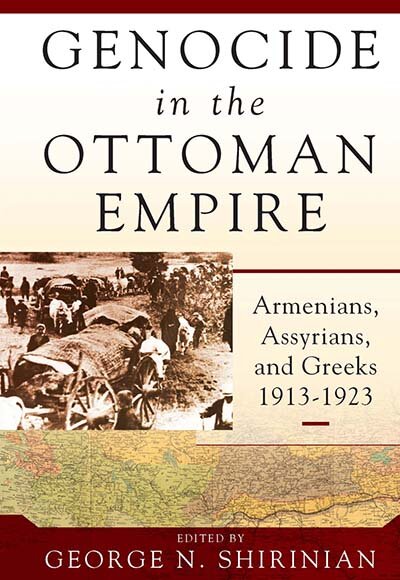 GENOCIDE IN THE OTTOMAN EMPIRE
GENOCIDE IN THE OTTOMAN EMPIRE
Armenians, Assyrians, and Greeks, 1913-1923
Edited by George N. Shirinian
The final years of the Ottoman Empire were catastrophic ones for its non-Turkish, non-Muslim minorities. From 1913 to 1923, its rulers deported, killed, or otherwise persecuted staggering numbers of citizens in an attempt to preserve “Turkey for the Turks,” setting a modern precedent for how a regime can commit genocide in pursuit of political ends while largely escaping accountability. While this brutal history is most widely known in the case of the Armenian genocide, few appreciate the extent to which the Empire’s Assyrian and Greek subjects suffered and died under similar policies. This comprehensive volume is the first to broadly examine the genocides of the Armenians, Assyrians, and Greeks in comparative fashion, analyzing the similarities and differences among them and giving crucial context to present-day calls for recognition.
Read Introduction
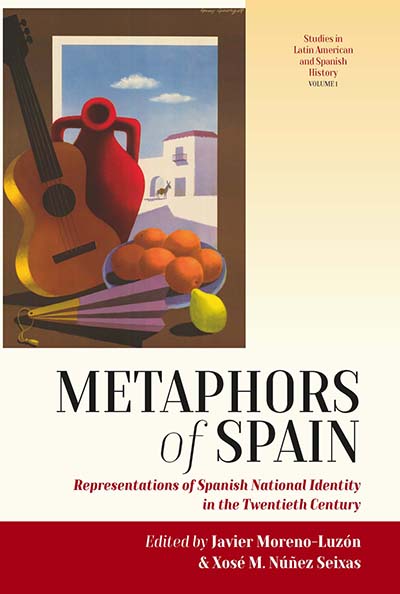 METAPHORS OF SPAIN
METAPHORS OF SPAIN
Representations of Spanish National Identity in the Twentieth Century
Edited by Javier Moreno-Luzón and Xosé M. Núñez Seixas
NEW SERIES Volume 1, Studies in Latin American and Spanish History
The history of twentieth-century Spanish nationalism is a complex one, placing a set of famously distinctive regional identities against a backdrop of religious conflict, separatist tensions, and the autocratic rule of Francisco Franco. And despite the undeniably political character of that story, cultural history can also provide essential insights into the subject. Metaphors of Spain brings together leading historians to examine Spanish nationalism through its diverse and complementary cultural artifacts, from “formal” representations such as the flag to music, bullfighting, and other more diffuse examples. Together they describe not a Spanish national “essence,” but a nationalism that is constantly evolving and accommodates multiple interpretations.
Read Introduction: The Nation and its Metaphors
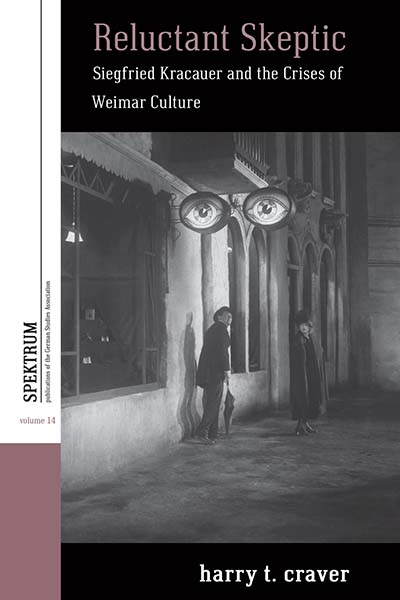 RELUCTANT SKEPTIC
RELUCTANT SKEPTIC
Siegfried Kracauer and the Crises of Weimar Culture
Harry T. Craver
Volume 14, Spektrum: Publications of the German Studies Association
The journalist and critic Siegfried Kracauer is best remembered today for his investigations of film and other popular media, and for his seminal influence on Frankfurt School thinkers like Theodor Adorno. Less well known is his earlier work, which offered a seismographic reading of cultural fault lines in Weimar-era Germany, with an eye to the confrontation between religious revival and secular modernity. In this discerning study, historian Harry T. Craver reconstructs and richly contextualizes Kracauer’s early output, showing how he embodied the contradictions of modernity and identified the quasi-theological impulses underlying the cultural ferment of the 1920s.
Read Introduction: Kracauer on and in Weimar Modernity
NEW IN PAPERBACKS:
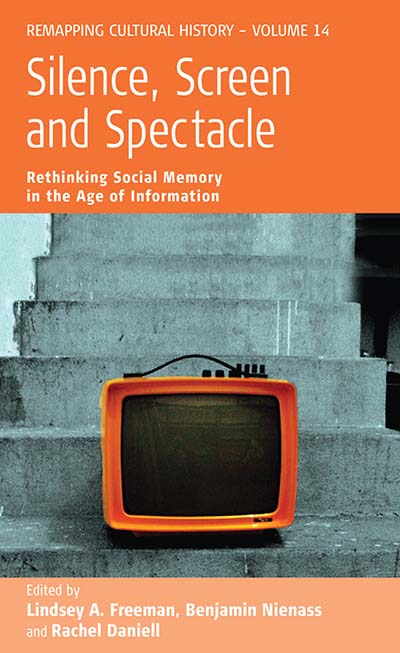 SILENCE, SCREEN, AND SPECTACLE
SILENCE, SCREEN, AND SPECTACLE
Rethinking Social Memory in the Age of Information
Edited by Lindsey A. Freeman, Benjamin Nienass, and Rachel Daniell
Volume 14, Remapping Cultural History
“This is an extremely interesting collection of essays on a wide variety of memory practices from across the globe.” · Jo Labanyi, New York University
In an age of information and new media the relationships between remembering and forgetting have changed. This volume addresses the tension between loud and often spectacular histories and those forgotten pasts we strain to hear. Employing social and cultural analysis, the essays within examine mnemonic technologies both new and old, and cover subjects as diverse as U.S. internment camps for Japanese Americans in WWII, the Canadian Indian Residential School system, Israeli memorial videos, and the desaparecidos in Argentina. Through these cases, the contributors argue for a re-interpretation of Guy Debord’s notion of the spectacle as a conceptual apparatus through which to examine the contemporary landscape of social memory, arguing that the concept of spectacle might be developed in an age seen as dissatisfied with the present, nervous about the future, and obsessed with the past. Perhaps now “spectacle” can be thought of not as a tool of distraction employed solely by hegemonic powers, but instead as a device used to answer Walter Benjamin’s plea to “explode the continuum of history” and bring our attention to now-time.
Read Introduction
 THE POWER OF DEATH
THE POWER OF DEATH
Contemporary Reflections on Death in Western Society
Edited by Maria-José Blanco and Ricarda Vidal
“As well as for thanatology and death studies specialists, the book will be of even keener interest to those in the various areas touched on in the essays, offering an eye-opening introduction to an interdisciplinary approach in this fascinating field.” · Social Anthropology
Shifting between the practical and the theoretical, the professional and the intimate, the real and the fictitious, this collection of essays explores the continued power of death over our lives. It examines the idea and experience of death from an interdisciplinary perspective, including studies of changing burial customs throughout Europe; an account of a“dying party” in the Netherlands; examinations of the fascination with violent death in crime fiction and the phenomenon of serial killer art; analyses of death and bereavement in poetry, fiction, and autobiography; and a look at audience reactions to depictions of death on screen.
Read Introduction
 2014 PREMIO LIMINA PRIZE FOR BEST FILM STUDIES BOOK (IN A LANGUAGE OTHER THAN ITALIAN)
2014 PREMIO LIMINA PRIZE FOR BEST FILM STUDIES BOOK (IN A LANGUAGE OTHER THAN ITALIAN)
THE EMERGENCE OF FILM CULTURE
Knowledge Production, Institution Building, and the Fate of the Avant-garde in Europe, 1919-1945
Edited by Malte Hagener
Volume 16, Film Europa
“…the book offers a rich and articulated picture of the organization and building of film culture in interwar Europe, and proves to be very keen in disclosing unexplored corners of well-known national film histories (as the Italian and German ones), but also of little explored scenarios (such as Swedish film culture or the Yugoslavian case).” · Historical Journal of Film, Radio and Television
Between the two world wars, a distinct and vibrant film culture emerged in Europe. Film festivals and schools were established; film theory and history was written that took cinema seriously as an art form; and critical writing that created the film canon flourished. This scene was decidedly transnational and creative, overcoming traditional boundaries between theory and practice, and between national and linguistic borders. This new European film culture established film as a valid form of social expression, as an art form, and as a political force to be reckoned with. By examining the extraordinarily rich and creative uses of cinema in the interwar period, we can examine the roots of film culture as we know it today.
Read Introduction: The Emergence of Film Culture
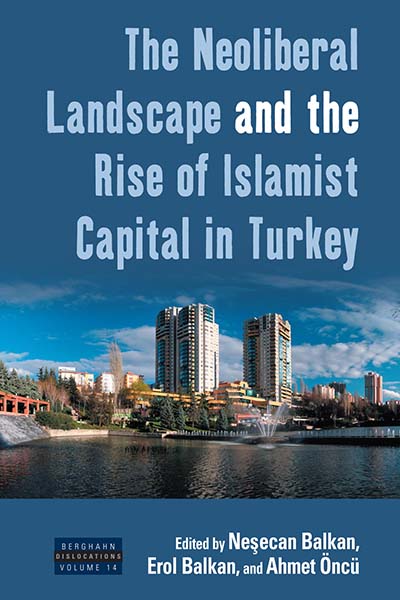 THE NEOLIBERAL LANDSCAPE AND THE RISE OF ISLAMIST CAPITAL IN TURKEY
THE NEOLIBERAL LANDSCAPE AND THE RISE OF ISLAMIST CAPITAL IN TURKEY
Edited by Neşecan Balkan, Erol Balkan and Ahmet Öncü
Volume 14, Dislocations
“Balkan and her colleagues offer us a clear and well-documented treatise of the neoliberal globalization of Turkey under the Islamic project within the command of the Justice and Development Party (AKP) – an implicit coalition of diverse Islamic movements… a very timely contribution, not only for its relevance on its depiction of the recent neoliberal era of Turkey, but also on its new conceptualization of the key issues such as ‘middle classes’, ‘Islamic capital’ and informalization. Very timely indeed.” · Research and Policy on Turkey
Islamist capital accumulation has split the Turkish bourgeoisie and polarized Turkish society into secular and religious social groupings, giving rise to conflicts between the state and political Islam. By providing a long-term historical perspective on Turkey’s economy and its relationship to Islamism, this volume explores how Islamism as a political ideology has been utilized by the conservative bourgeoisie in Turkey, and elsewhere, to establish hegemony over labor. The contributors analyze the relationship between neoliberalism and the political fortunes of the Islamist Justice and Development Party (AKP), and examine the similarities and differences amongst new factions in the secular and Islamic middle class that have benefited economically, socially, and culturally during the AKP’s reign.
Read Introduction
